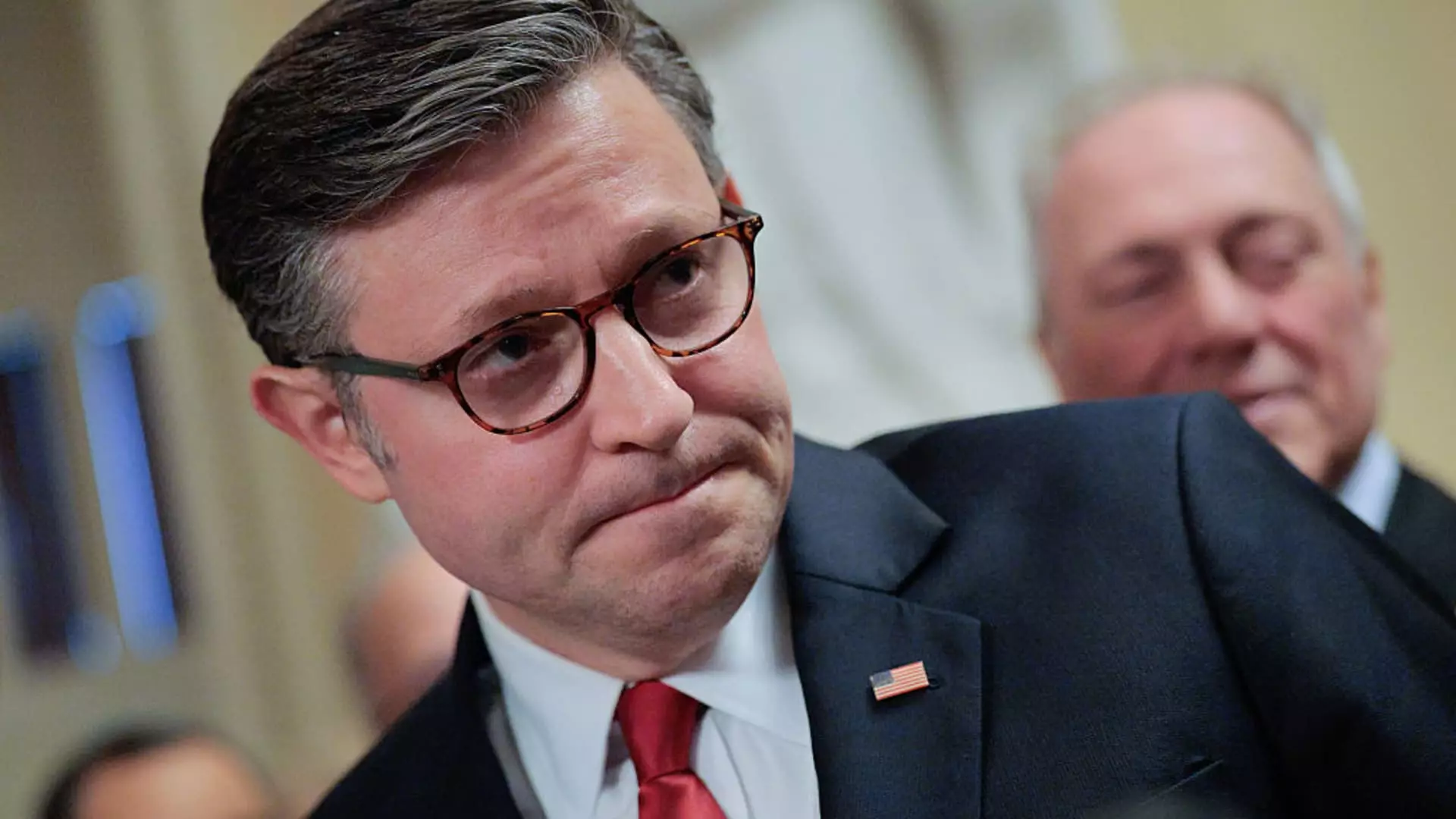The recent saga in the U.S. House of Representatives reveals more about political theater than genuine policymaking. A razor-thin Republican majority managed to push a contentious tax and spending package through the chamber amid internal fractures and intense negotiations. This event underscores a troubling reality: in the pursuit of legislative victories, party leaders are increasingly resorting to back-room deals, arm-twisting, and superficial unity, all while the nation’s needs often take a backseat. The drama-fueled process reflects a binary political spectacle rather than a sincere effort to craft balanced policies. It illustrates how charismatic leadership and behind-the-scenes maneuvering are prioritized over substantive debate and problem-solving.
The prioritization of party loyalty over effective governance creates a false sense of accomplishment. By narrowly securing enough votes, Republican leaders showcase a facade of unity, yet beneath the surface, dissent sputters and diverging visions threaten the integrity of the process. When the dust settles, what remains is a legislative shadow—an overly complex, heavily negotiated bill that may not serve the broader public’s interests but rather the narrow political aims of powerful factions within the ruling party.
The Illusion of Economic and Moral Victory
At face value, the bill appears to be a modest extension of earlier tax cuts and a package aimed at boosting border security. But beneath this surface, it embodies a dangerous trend: favoring the wealthy and security over social welfare and economic equity. The rhetoric from proponents paints this as a necessary step to secure America’s future; however, the underlying implications suggest a harsh prioritization of tax benefits for the ultra-rich, at the expense of everyday Americans struggling with health, nutrition, and economic stability.
Remarkably, critics like Democratic Representative Gabe Amo claim that the bill’s design disproportionately favors billionaires, with the top 1% poised to gain significant additional income—something that feeds inequality and social division. Meanwhile, vulnerable populations face the prospect of losing critical benefits, risking increased poverty, healthcare insecurity, and food hardship. Accompanying the bill are deeper cuts to Medicaid and nutrition programs—decisions that threaten to weaken the social safety net, pushing those in need further to the margins. This prioritization of fiscal conservatism over human welfare reveals a lack of moral clarity and a detachment from the realities faced by millions.
It is easy to dismiss these criticisms as exaggerated or hyperbolic, but history has shown that such legislative choices have long-term consequences. Policies that favor wealth accumulation for a few often undermine social cohesion and economic mobility. Although framed as necessary for fiscal responsibility, these measures risk a future where inequality deepens, and social fractures widen. The political debate becomes a game of syntax and numbers rather than a genuine roadmap to shared prosperity.
The Duality of Political Messaging and Its Consequences
Amidst the chaos, the messaging from both sides reveals a deeper disconnect. President Trump’s visceral condemnation on social media—calling the bill an “easy yes” or “ridiculous”—exposes a populist bravado that often masks a political strategy designed more to rally base support than to promote nuanced policy. Meanwhile, Democrats frame the bill as an assault on social progress, bolstering their narrative of defending the vulnerable from reckless fiscal policies.
This polarized messaging diminishes the possibility for meaningful compromise or reform. Instead, it hardens ideological lines, creating a political climate where cooperation is sacrificed for short-term gains and electoral advantage. The deliberate manipulation of public perception serves to distract from the true stakes: the future well-being of the American social fabric and the integrity of its institutions.
The political spectacle surrounding this bill exemplifies a broader trend: governance increasingly becomes a matter of optics and theatrics, rather than a genuine pursuit of the common good. As the bill advances toward final approval and eventual signing, the underlying issues—rising inequality, underfunded public services, and increasingly polarized politics—remain unresolved. Whether good or bad, what’s clear is that the current process elevates power struggles over pragmatic policymaking, often leaving the most vulnerable to bear the costs.


Leave a Reply